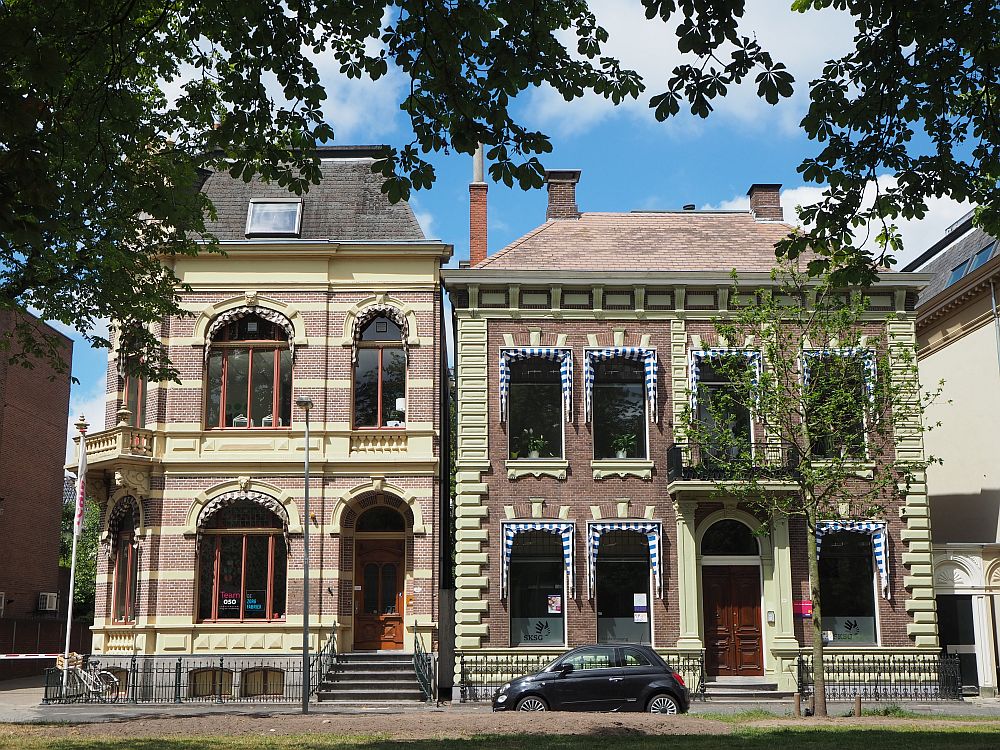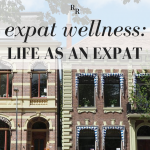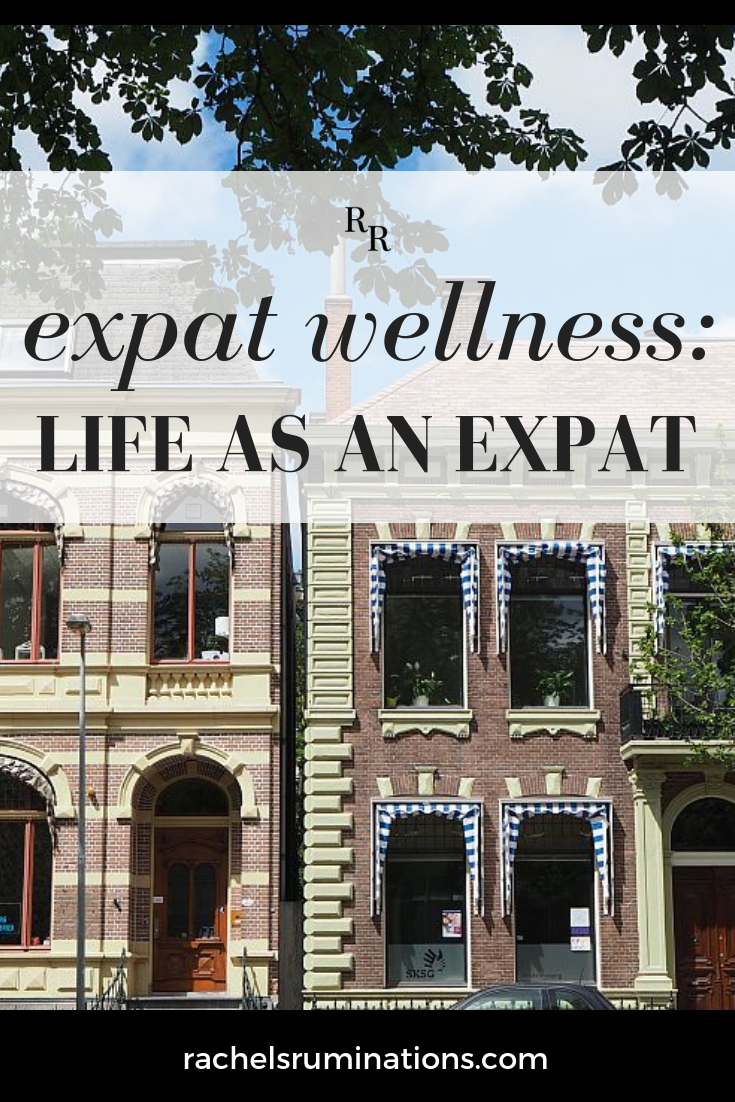Expat wellness: Life as an expat
I haven’t written an article in a long time about expat issues, despite the fact that my articles about expat life still get regular readers. My posts about renouncing my citizenship, in particular, are in my top 10 nearly every day.
So when I was approached by Aetna International to collaborate with them as an “expert when it comes to expat life,” I was intrigued at their request. (Disclosure: This means that this is a sponsored post.)

Aetna International interviewed me about my experiences as an expat and how the concept of “wellness” affects my everyday life.
Being interviewed about my life as an expat
It’s a bit ironic that anyone would ask me about wellness: besides being thoroughly un-fit and quite sedentary in my lifestyle, I’ve never been the type to take up the latest superfood or vitamin hype or whatever. I don’t even use moisturizer!
Nevertheless, the questions they asked were interesting, and got me thinking about my life as an expat in a way that I haven’t in a while. I enjoyed reviewing so many topics that once seemed so strange to me when I first arrived – particularly finding my way around the health care system – and that I completely take for granted now.

Am I an expat?
Can I even call myself an expat anymore? Since 2015, I’ve only had Dutch citizenship. I’ve lived in the Netherlands since 1997. I speak Dutch pretty close to fluently. I read a Dutch newspaper every morning. And I’m completely used to how things work in the Netherlands. It’s as if my expat-ness has gradually faded over time, like a scar. It’s still there, but barely noticeable.
And yet, at the same time, I’m still very much surrounded by a sort of expat bubble. My best friends are other expats. I work in the English department of a teacher-training college, so I speak English at work most of the time, unless I have to communicate with students or colleagues from outside my department. At home, my husband and I mostly speak English to each other. I carry my American-ness around with me wherever I go.
You might also enjoy these articles:
Expat wellness
While the Aetna International Wellness Survey does not appear to be available online anymore, I can tell you that it covered a lot of issues besides expat wellness: education, health care, security, and other challenges that expats face. It wasn’t based on a big sample, but rather in-depth interviews with only 32 families around the world. Nevertheless, it addressed pretty much every issue I went through in the over two decades since I moved here.
Perhaps that’s the point I’m getting to. The Wellness Survey pointed out a lot of issues and problems that newer expats have.
- You might have trouble figuring out the local educational system, and their style of education might be different too.
- Their healthcare system may be organized completely differently to what you’re used to. That doesn’t make it worse; just different.
- You may, depending on where you are, have to pay more attention to security for you and your family. In the place where you are, that’s normal, and will eventually feel normal to you too.
- You may find customs around store opening hours that are very unlike what you’re used to at home. And you may not be able to find the items you want in stores where, at home, you’d expect to find them.
- You may not be able to make friends as quickly and easily as you’d expect. This may have to do with the language barrier or it may have to do with cultural differences.
What I can offer is a measure of reassurance: the longer you stay, the easier it will get. You’ll figure it out! Be patient, be observant, and try not to compare everything with “back home.” Take it for what it is – adapt to the locals’ way of doing things to the extent you’re comfortable with.
Now, for some people that may not be reassuring. If you’ve become an expat for the excitement – for the newness of living in a new place and learning a new culture – you may not want it to get easier. You don’t want to settle in and get used to it.
But most people do want to feel comfortable where they live, so what I want to say is that you will. Humans are remarkably adaptable and even if you’re feeling like you’ll never really feel at home, you can make a home for yourself as an expat.
Your life as an expat may not be just like the culture where you live, or just like the culture you left. It may be an amalgamation of both, but that’s fine.
At least, it works for me.





Interesting post, Rachel. Just as you’ve said regarding your expat life, friends of mine who have moved across the country (Canada) say that they spend most of their time with friends from their home province. So I guess it is customary for us to seek the comfort of dealing with people who “get us” — wherever we may be.
Yes, and fluency in the language has a lot to do with it here in Europe. I am close to fluent in Dutch, yet I still can’t express myself in Dutch nearly as well as in English. And it’s nice to just be able to chat without having to think about it.
As you no doubt know, we will be celebrating Thanksgiving in the United States in a few days. It has always been one of my favorite holidays as it is quintessentially American. People give thanks, but it’s not a holiday claimed by any one religion (although I disturbing number of educated Americans who should know better have asked me if Jews celebrate Thankgiving), but I digress. I have distinct memories of celebrating Thanksgiving as an expat child in both Mexico when I was 9 and in England when I was 15. It was definitely a time when American expats sought each other out. We celebrated last Thanksgiving in Mexico City with our son who is an expat there now. He took us to a barbecue restaurant called Pinche Gringo which translates as “Fu*king Gringo”. They had a country music band and a turkey dinner with all the trimmings, albeit served on brown paper with plastic cutlery. It wasn’t all gringos—plenty of Mexicans were there although I suspect most of them had some connection with the US.
I celebrate Thanksgiving every year, even though I live in the Netherlands and I’m not even American. Something about cooking a special meal for friends and family keeps me doing it. Even lately, when my kids can’t be home for Thanksgiving, I’m still doing it along with other expats.
As an ex pat in Greece, where having health (medical and repatriation) coverage is a requirement for a residency visa, we have spent more time thinking about health/health care/coverage than I would ever have thought possible. As for life getting easier, I think that wherever you live as life becomes more routine it gets easier; aspects of this life are so ‘normal’ now that we don’t even think about them.
I am retired and over 70, do you think moving to the Netherlands is something I would be able to do at my age or would all the differences be too much.?
To some extent I think it depends where you move here from and how different that culture is from here. Having said that, many of the bigger cities are very international and diverse, especially Amsterdam, the Hague and Rotterdam, so you’d be able to find a community. The bigger problem is: would you be allowed to move here? If you’re from the European Union, I think it’s pretty simple. From anywhere else and it gets far more complicated. As for your age, it seems to me that a consideration has to be what you would do if you needed more care, i.e. a nursing home. Would you be comfortable if the dominant language in the nursing home isn’t your own?
I do have a step son and grandson that currently live in South Holland, Zwartewaal. I know thay language would be an obstacle, I do speak some German and am trying to teach myself Nederland. I have lived in Europe in the past, Germany and France, many years ago. I lost my husband in 2019 to cancer. I understand the concern over my health, I am currently pretty healthy, and am sure the different lifestyle there would be a benefit to my health, better food choices and more walking and or bycicling. I am just so very undecided. Help.
Why not come over here and try it temporarily and see how it feels? You’d certainly have more reliable access to health care. And in a bigger city the language is less of a problem – when I visit Amsterdam I hear more English on the streets than Dutch, and often shop assistants, waiters, etc. don’t even speak Dutch. That’s even becoming more and more the case here in Groningen, because the university has switched to operating in English so there are lots of foreign students and professors.
I forgot to mention that I am in the USA, was born in Germany of German parents. I am a US citizen.
So if you have German citizenship, you can just move here, find a place to live, register with the gemeente (city government), and you’re a resident (There are probably a few more steps but I don’t know the details and I know it’s meant to be easy for EU citizens). If you only have US citizenship, it’s much more complicated. Here’s the government’s immigration website, which would be a good place to start your research: https://ind.nl/en/stay-or-live-in-the-Netherlands/Pages/default.aspx. But to look at your original question, if you feel an affinity with your German background, you’ll be able to fit in here pretty well. If you choose a city near the German border like Arnhem or Nijmegen, you could always cross the border for, say, German food or shopping.